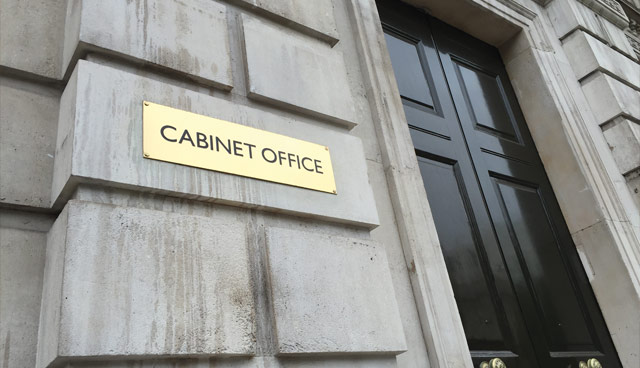Familiar themes at British-Irish Intergovernmental Conference

As a major provision of the Good Friday Agreement, the British-Irish Intergovernmental Conference (BIIGC) has convened for the 20th time in its history. Conceived to facilitate the third strand of the Agreement, leaders from British and Irish governments gathered at Whitehall in November for the second time this year to discuss key issues of commonality.
The Conference met less than four months since its July meeting, which marked 11 years since its previous meeting in February 2007. Established to “promote bilateral co-operation at all levels on all matters of mutual interest within the competence of both Governments”, the November meeting saw Irish Government representation from Tánaiste and Minister for Foreign Affairs and Trade, Simon Coveney TD, and the Minister for Justice and Equality, Charles Flanagan TD. The Government of the United Kingdom was represented by Chancellor David Lidington and Secretary of State for Northern Ireland, Karen Bradley.
Whilst Brexit negotiations have advanced significantly since June, issues on the agenda of November’s conference were of a familiar theme, discussing legacy framework, implementation of the Stormont House Agreement, security cooperation, political instability and ‘east-west matters’ of common concern between the British and Irish Governments. A joint communique from the British Irish Intergovernmental Conference referenced a joint will from the governments to facilitate the return of a functioning Executive in Northern Ireland, as well as an agreed commitment to accelerate the implementation of legacy framework, as agreed in the 2014 Stormont House Agreement.
July’s conference, whilst signalling universal consensus on east-west issues, was largely dismissed by observers and commentators as being rhetorically based and lacking in political substance – an opinion supported by DUP leader Arlene Foster, who, in an interlude from the political fallout of the RHI scandal, dismissed the event as a mere “talking shop”. This was a sentiment echoed by deputy leader, Nigel Dodds, who at the time called for the British Government to take a greater role in Northern Irish affairs in the absence of a functioning Assembly.
Representatives of the British and Irish Governments, however, struck a notably contrasting tone to the DUP. Speaking after the conference, Coveney welcomed “a very productive meeting” and a discussion which sought to “ensure that Ireland and the UK’s future relationship is safeguarded”. Similarly, Minister Flanagan echoed a previous statement made in July in regard to a joint commitment from the Governments to combat paramilitary violence and “put them out of business”. Flanagan’s comments came following the Conference’s welcoming of the first report of the Independent Reporting Commission, stating that “the restoration of the institutions of the Belfast/Good Friday Agreement are essential to ending paramilitarism and achieving community transformation”.
Matters of East-West interest focussed around the United Kingdom’s impending departure from the European Union. The Conference reaffirmed its intention to agree new, post-Brexit structures “to maintain the spirit of cooperation that has been engendered through such contacts in an EU context; as well as provide an overall architecture for cooperation that is both meaningful and sustainable in the future”. Government officials were tasked with forming detailed proposals for future East-West cooperation ahead of the next meeting of the Conference, which is set to reconvene in spring of 2019.





